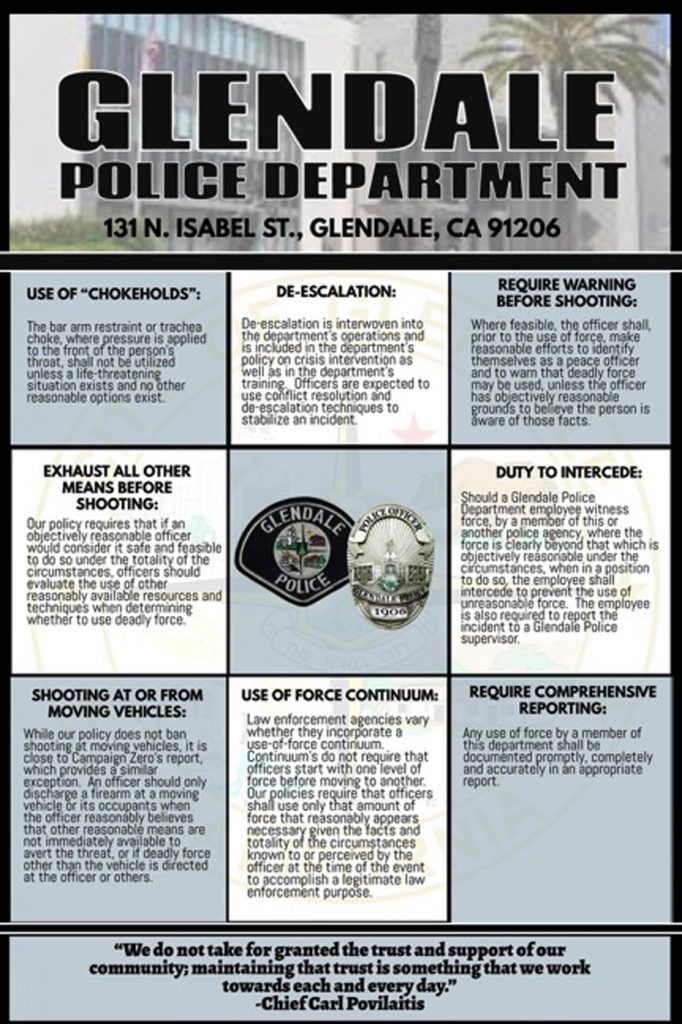By Julie BUTCHER
Following the June 2 meeting of the Glendale City Council, the police department issued a comprehensive policy statement detailing its use of force and other policies compared to recommendations from Campaign Zero, a national police reform advocacy organization.
“The City of Glendale and the Glendale Police Department (GPD) have received many inquiries about our police department’s policies and how they may or may not meet some of the guidelines being advocated for by police reform organizations. We have re-examined our polices and feel that most, if not all, directly align with what is being asked for in the recommendations,” the statement read. Also referenced was a document titled Guiding Principles.
“The Glendale Police Department has and continues to work very hard to build relationships between those we serve, law enforcement and community leaders, yet we recognize that maintaining this trust is an ongoing effort,” states the Guiding Principles in part. “That is why Glendale regularly trains its police officers in responding to hate crimes, tactical communications, cultural diversity, and racial profiling, with the practice of de-escalation representing a critical component of the department’s arrest control and defensive tactics training for the last two decades.”
The department responded point-by-point to the report cited. The 2016 report (https://tinyurl.com/yda2xmwz) analyzed policies and outcomes of police departments and recommended actions to reduce police violence.
The organization rated every California police department. In 2016, Glendale received an ‘F’ grade (https://policescorecard.org/?city=glendale) as did the cities of Los Angeles and Pasadena and the LA County Sheriff Dept.; Burbank received a ‘D.’
In response, the Glendale police department shared its policies in detail (https://tinyurl.com/y9pk9f3f) that include current training outlines and policy manual.

